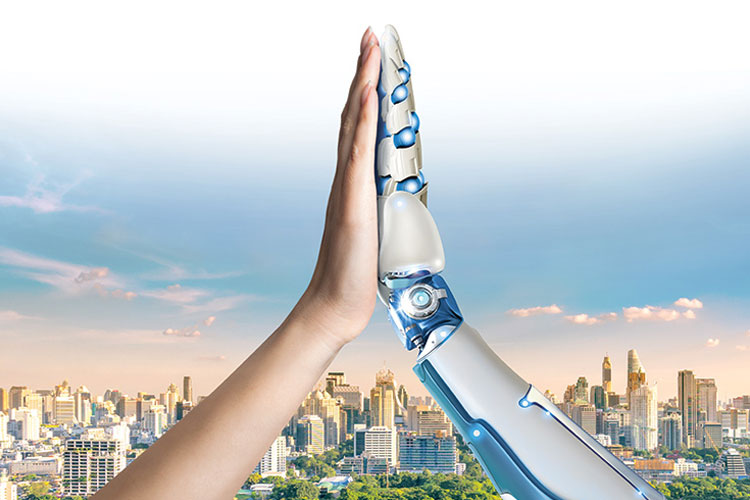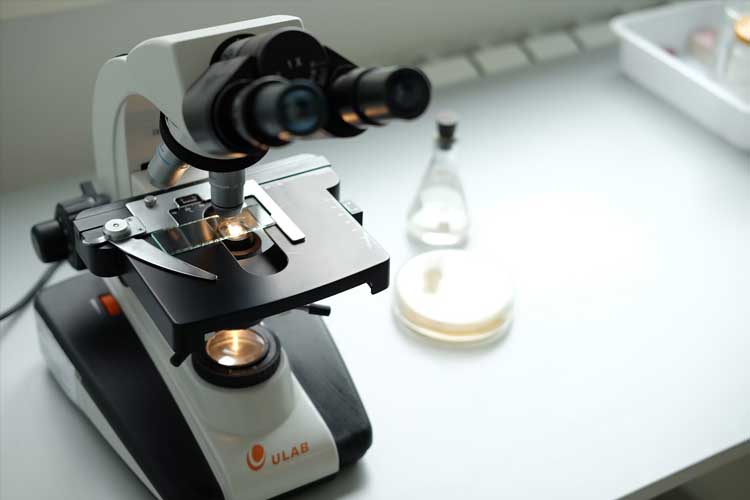Unlocking the Future: Innovation in Thailand

TIMES Network – Innovation Thailand has been a growing force, with the country acceptance new technologies, development startups, and focusing on maintainable development. Here are some key aspects of innovation in Thailand:
1. Government Support and Policy
• Thailand 4.0: A key advantage by the government directed at transforming the country into an innovation-driven economy. This policy promotes the development of high-tech industries such as robotics, digital technologies, and biotechnology, while reducing trust on traditional industries.
• Startup Ecosystem: The government supports startups through funding, grants, tax incentives, and partnerships with private sectors. The National Innovation Agency (NIA) helps with the commercialization of innovations.
2. Technology and Digital Transformation
• Digital Economy: Thailand is accelerating the adoption of digital technologies such as 5G, AI, and big data. Initiatives like Smart Cities and the Digital Thailand program aim to modernize urban areas and improve citizens' quality of life through smart infrastructure.
• FinTech and E-commerce: The country has seen a boom in financial technologies, including mobile payment systems, blockchain, and online retail platforms. Thailand's fintech sector has been expanding rapidly with companies like Ascend Money, TrueMoney, and KASIKORN Business-Technology Group (KBTG) leading the way.
3. Innovation Hubs and Research
• Eastern Economic Corridor (EEC): This region, focused on innovation and high-tech industries, serves as a hub for companies working in the fields of robotics, aerospace, and electric vehicles. It includes the Innovation District that encourages R&D partnerships and technological development.
• Universities and Research Institutions: Thai universities, including Chulalongkorn University, Mahidol University, and King Mongkut's University of Technology, have been increasing their focus on innovation, research, and technological development. Partnerships with industry players foster innovation in fields like medicine, engineering, and environmental technologies.
4. Sustainability and Green Innovation
• Thailand has also been focusing on green innovation, aiming to become a regional leader in sustainable technologies. The country promotes the use of renewable energy, particularly solar power, and encourages innovations in agriculture, waste management, and water conservation.
5. Innovation in the Private Sector
• Startups and Incubators: Thailand's startup ecosystem is growing rapidly. Organizations like True Incube, Dtinthai Startup, and Siam Innovation District offer resources for budding entrepreneurs to turn their innovative ideas into businesses.
• Collaboration with International Tech Firms: Thailand is a key player in the ASEAN region, attracting international tech giants to set up their R&D and innovation hubs, such as Microsoft, Google, and Intel.
6. Challenges and Future Outlook
• While innovation is on the rise, Thailand faces challenges such as the need for improved education in STEM (Science, Technology, Engineering, Mathematics), a need for further infrastructure development, and the transition from a manufacturing-based economy to a knowledge-based economy.
• The government's focus on "Thailand 4.0" shows promise for future growth in sectors like artificial intelligence, blockchain, and sustainable energy, setting the stage for continued innovation in the coming years.
What is Thailand ranked in innovation?
Thailand climbs to 41st place in Global Innovation Index. Thailand was ranked 41 among 133 economies featured in the Global Innovation Index (GII) 2024, its highest place in a decade, the National Innovation Agency (NIA) has said.
Is Thailand advanced in technology?
Thailand is one of the first countries in Southeast Asia to successfully deploy 5G technology. As of 2022, coverage of 5G networks has reached 85% of the population. The government expects the number of people with 5G access to continue to grow as people upgrade to 5G devices.
What is Thailand 4.0 industrial development strategy?
Thailand 4.0 focuses on manufacturing that utilizes innovation. This initiative has targeted 5 groups of technology and industry i.e. food and agriculture; biotechnology; wellness and medical technology; smart machines; and digital system and artificial intelligence.
Why is Thailand so successful?
Thailand's economy is a blend of a strong agricultural sector with a developed manufacturing sector and a stable service sector. Although the agricultural sector has given way to others, it still employs a large part of the labor force and still bolsters exports, the engine of the country's economy.
What is the biggest industry in Thailand?
Thailand is an emerging economy and ranks second in Southeast Asia in terms of economic performance. In 2021 GDP reached over 510 billion US dollars. The basis of the economy is the service sector and tourism (accounting for about 50% of GDP), industry (40%), agriculture (10%).
What is the robot density in Thailand?
In 2019, average robot density in the manufacturing industry was 113 units per 10,000 employees.
What innovation happened in Thailand?
Thailand has seen several innovations across various sectors in recent years, with the country rapidly embracing new technologies and advancements. Here are some notable innovations that have taken place in Thailand:
1. Digital Transformation and FinTech
• PromptPay: Launched by the Bank of Thailand, PromptPay is a fast and secure peer-to-peer payment system. It allows users to transfer money instantly using a phone number or a citizen ID, boosting the country’s digital economy.
• TrueMoney: A digital wallet and mobile payment service, TrueMoney has become a popular tool for online payments, remittances, and e-commerce transactions in Thailand and Southeast Asia.
• QR Code Payments: Thailand has adopted QR code payments widely, supported by financial institutions like Kasikornbank and Siam Commercial Bank. This innovation makes it easy for consumers and businesses to transact using their smartphones.
2. Electric Vehicles (EVs) and Green Technology
• EV Ecosystem Development: Thailand is pushing for the development of electric vehicles (EVs). The government has introduced incentives for EV manufacturers and users, and companies like BYD and TATA have established EV production plants in the country. The Thai government’s goal is to make the country a regional hub for electric vehicle production.
• Solar Energy: Thailand has been investing heavily in solar energy innovation, becoming a leader in Southeast Asia. The country has set ambitious targets for solar energy capacity, with many companies focusing on solar panel manufacturing and renewable energy projects.
3. Agricultural Technology (AgriTech)
• Smart Farming Solutions: Innovations in agriculture have been significant, particularly with the use of IoT (Internet of Things), drones, and artificial intelligence to optimize farming techniques. Startups like AgriTech Thailand focus on improving crop yields, water management, and reducing waste.
• Vertical Farming: Companies in Thailand have been exploring vertical farming, a method of growing crops in stacked layers, often integrated with hydroponics. This innovation is helping to solve space constraints and is contributing to sustainable food production.
4. Healthcare and Biotechnology
• Medical Robotics: Thailand has introduced medical innovations, such as robot-assisted surgeries, to improve precision and reduce recovery time. The Robot-Assisted Spine Surgery at Siriraj Hospital is one of the leading examples.
• Biotechnology and Vaccines: Thailand has made strides in biotech and vaccines, with local companies like BioNet and Baiya Phytopharm focusing on producing vaccines and therapies for diseases like dengue and COVID-19. Thailand has been at the forefront of producing affordable, high-quality vaccines for the region.
5. Smart Cities and Infrastructure
• Smart Cities Initiatives: The Thai government has been working on creating Smart Cities across the country, including in Chiang Mai and Pattaya. These cities are being developed with technology-driven urban management, smart transportation systems, and energy-efficient infrastructure to improve the quality of life.
• 5G Deployment: Thailand is a leader in 5G technology adoption in Southeast Asia. The deployment of 5G networks in major cities is expected to revolutionize industries such as manufacturing, healthcare, and transportation.
6. Tourism and Hospitality Innovations
• Digital Tourism Platforms: Thailand has developed various digital platforms to enhance the tourism experience, including virtual tours, real-time booking systems, and AI-driven travel recommendations. The Thailand Pass system, for instance, streamlined entry and health safety for travelers during the COVID-19 pandemic.
• Sustainable Tourism: Innovations in eco-tourism and sustainable travel have gained traction in Thailand. Tourists are increasingly interested in low-impact travel options, and the government is promoting initiatives like eco-friendly hotels, green tourism packages, and the use of electric vehicles for sightseeing.
7. AI and Robotics
• AI in Manufacturing: Thai companies are integrating AI and robotics into the manufacturing process to enhance productivity and reduce costs. The automotive and electronics sectors, in particular, are using AI-driven solutions for quality control, automation, and predictive maintenance.
• Robot-Assisted Service Industry: Thailand has been adopting robots in the service sector, particularly in restaurants and hotels. Robots are being used for tasks such as food delivery, customer service, and cleaning, helping to improve efficiency and hygiene.
8. Smart Agriculture and Food Innovations
• Plant-Based Foods: Companies in Thailand have embraced plant-based food innovations, responding to the growing demand for vegan and sustainable products. Brands like Thai Union and Innofood are developing plant-based alternatives to traditional seafood and meat products.
• Food Tech Startups: Thailand has seen the rise of food technology startups, especially in the areas of lab-grown meat, plant-based proteins, and sustainable food packaging.
9. Startups and Entrepreneurial Innovations
• Startup Ecosystem: Thailand has developed a vibrant startup ecosystem, particularly in Bangkok. The country’s growing number of incubators, accelerators, and venture capital firms have spurred innovation in various sectors, including FinTech, e-commerce, AI, and IoT.
• Thailand’s Digital Nomads Movement: The government’s push to promote digital nomadism is also an innovation of sorts, with Thailand offering attractive visa options and services for remote workers to live and work in the country, especially in cities like Chiang Mai and Bangkok.
What's Your Reaction?

















